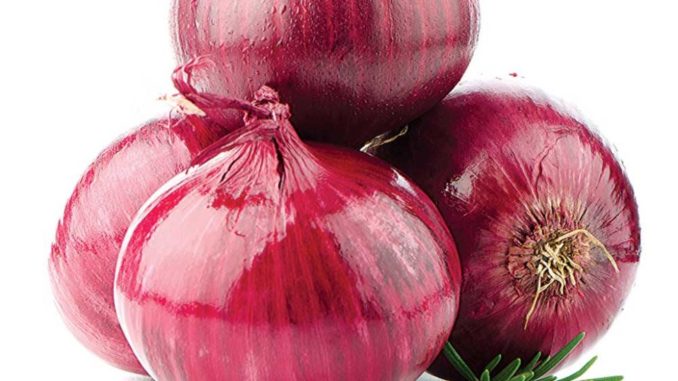
Onion is one of the most cultivated vegetables across the globe. But flooding in the north and the upsurge in its demand within Nigeria over the past months coupled with a biting shortage in its production has sent its price skyrocketing so much so that many have likened the crop to wealth.
Salad, jollof rice, tomato stew, yam porridge, beans, name it! There’s just too much we now cook with onions such that food lovers don’t mind sparing a fortune to have it in their meals — even as prices continue to hit the rooftops. Beyond culinary obsession with the vegetable, not many tend to consider its health benefits and nutritional values.
Onion is a good source of vitamins, minerals, and fiber. Its vitamin C component helps in general tissue repair. It also functions as an antioxidant, improves iron absorption, and boosts immunity. Onion is a source of the vitamin B complex group like pantothenic acid, pyridoxine, folate, and thiamine which plays an important role in neurosis.
The heart
Onion contains quercetin and sulphur compounds that protect against heart diseases. The anti-inflammatory properties of Quercetin lowers the risk of heart disease like high blood pressure. A study in 70 obese people with high BP found that a dose of 162 mg per day quercetin rich onion extracts significantly reduced systolic BP by 3-6 mm Hg.
Studies have also shown that intake of quercetin rich onion decreased bad cholesterol and high triglycerides level. In turn, the sulfur compounds in onion act as a natural blood thinner, thereby preventing platelets from clotting.
Carcinogenesis
Back in 2019, a study in the Asia Pacific Journal of Clinical Oncology compared 833 people with colorectal cancer with another 833 people who didn’t have it. The researchers found the risk of colorectal cancer was 79 percent lower in those who regularly consumed allium vegetables such as onions, hence their benefits for the prevention of cancer.
Skin and hair
As a good source of vitamin C, experts say that onions support the building and maintenance of collagen, which provides structure to skin and hair. In a 2018 study, researchers created an onion shampoo. When tested on the study subjects, they concluded that it nourished their hair follicles, moisturized dry hair, and aided hair growth.
Blood sugar
Multiple studies have ruled that eating onions may help control blood sugar, which is significant for people with diabetes or prediabetes. One study involving 42 people with type 2 diabetes showed that eating 3.5 ounces (100 grams) of fresh red onion reduced fasting blood sugar levels by about 40 mg/dl after four hours.
Specific compounds like the quercetin and sulfur components found in the vegetable possess antidiabetic effects.
Digestive health
Fiber and prebiotics are some components onions offer. Studies have established their role in maintaining optimal gut health. Prebiotics are broken down by gut bacteria to create short-chain fatty acids like acetate, propionate, and butyrate. These can strengthen gut health, boost immunity, reduce inflammation, and also enhance digestion.
END

Be the first to comment